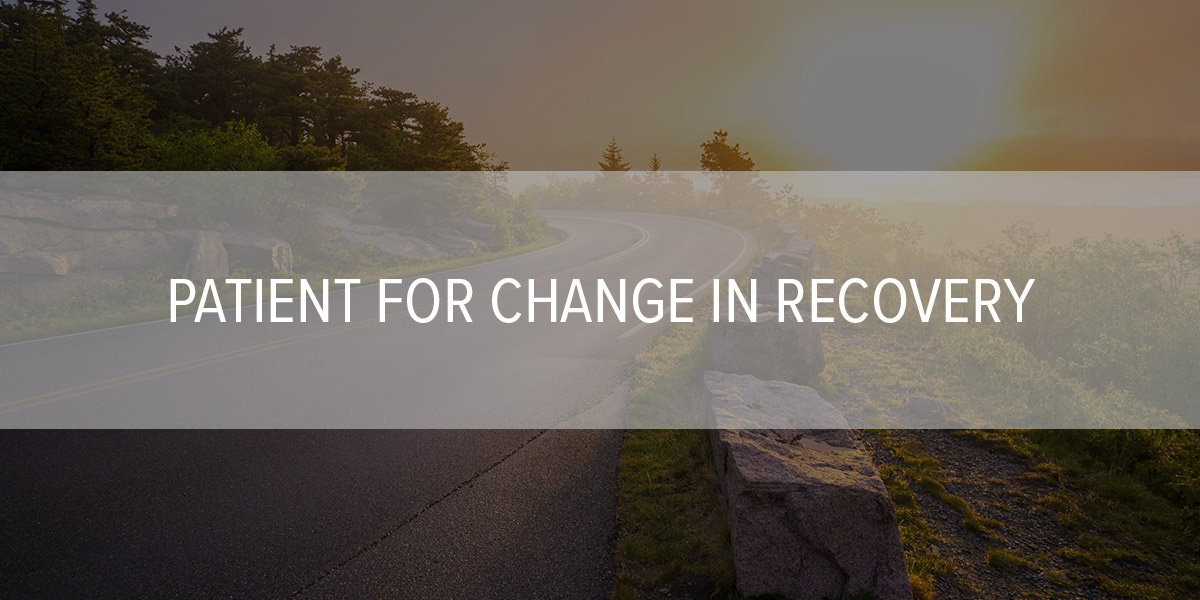The biblical story of redemption will always provide the framework for recovery.
Recovery in the space and time we live is a slow and difficult journey, and the temptation to abandon that journey is great. We are so plugged into a life of instant gratification that instant and quick becomes the norm for all of life. When something needs to change, and we need to recover emotionally, relationally, and spiritually, we confront a worldview bent toward instant change. In his book, Long Obedience in the Same Direction, Eugene Peterson writes about the instant nature of our age, “One aspect of world that I have been able to identify as harmful to Christians is the assumption that anything worthwhile can be acquired at once. We assume that if something can be done at all, it can be done quickly and efficiently. Our attention spans have been conditioned by thirty-second commercials. Our sense of reality has been flattened by thirty-page abridgments.” Peterson wrote this over 40 years ago, and the speed of life has increased exponentially. We find ourselves in a society that is moving forward so quickly, and it seems as though we can’t afford to waste time and step off that fast-moving train of everyday life. Even through my own story of healing and recovery, I realize that it takes time to unwind destructive thinking and behaviors that alter or control life. Working in recovery, I have seen hundreds of people shortcut their recovery journey because it did not seem as though change was happening fast enough. Take a moment to think about an area of your life that needs to change. Think about the time it took to end up at where you are right now. Now, think about what it would take for that relationship, hurt, habit, or hangup to be confronted and for life as it is to change.
Our first response when we count the cost of recovery is to find a quicker way or one of less resistance. We think there must be a faster way to get past the need for recovery. God has given me the opportunity to walk closely with people in life change for the past 20 years. I’ve seen the power of a genuine relationship with Jesus Christ truly change people. At the same time, I have also seen men and women use the name of Jesus and busy themselves with church activity as a cover-up for the pain that they have never truly worked through and healed from. Recovery involves going back and letting Jesus into the past. Recovery takes time. In time, we come to find that there is no other way to change and really no quicker route forward. In his book Mere Christianity, C.S. Lewis wrote, “We all want progress. But progress means getting nearer to the place where you want to be. And if you have taken a wrong turn, then to go forward does not get you any nearer. If you are on the wrong road, progress means doing an about-turn and walking back to the right road, and in that case, the man who turns back soonest is the most progressive man.” What feels like a step back could, in fact, be the best step forward. I have often asked people this question when it comes to their recovery, “Where do you want to be one year from today?” The question is meant to help them take a difficult step into the journey of recovery with the end goal in mind…. even if that step feels like a step back. So what is the end goal?
The end goal of recovery is not sobriety. The end goal is not to stop this or that behavior. Behaviors don’t just appear. Behaviors are birthed from the heart. Heart Transformation is the end goal.
Scripture in Proverbs 4:23 reads, “Keep your heart with all vigilance, for from it flow the springs of life.” This scripture leads us to believe that the springs/source of life come from the heart. The spiritual heart is the epicenter of life. What we do comes from a center, and the center is the heart. Also, Jesus says in Mark 7:15, 20-23, “There is nothing outside a person that by going into him can defile him, but the things that come out of a person are what defile him.” Jesus goes on to say, “What comes out of a person is what defiles him. For from within, out of the heart of man, come evil thoughts, sexual immorality, theft, murder, adultery, coveting, wickedness, deceit, sensuality, envy, slander, pride, foolishness. All these evil things come from within, and they defile a person.” The biblical instructions are for us to keep our hearts. That means when there is a wound to our spiritual heart, our responsibility is to bring that wound to the healer.
The biblical story of redemption will always provide the framework for recovery. Jesus is our healer, and there are timeless patterns in the story of redemption. There are many parts of redemption (many have been highlighted by the healing journey of the 12 Steps of Recovery), but for our sake, let’s highlight three critical crossroads we can learn from and find ourselves in. These crossroads are where many look for an alternative and quicker route in their recovery.
1) Admitting Our Need – This is the place of recognizing our need for God’s grace. Admitting is acknowledging that we are powerless to recover on our own. We need Jesus, and we need His church. Romans 7:18
2) Taking Inventory – This is where we begin to receive God’s grace in dealing with parts of our past that we have ignored or run from. Psalm 51:6
3) Forgive and Follow – This is where we respond to God’s grace. At this point in recovery, we trust Jesus enough to lean on Him as we forgive, seek forgiveness, and seek the regeneration and healing process of our relationships: first, the restoration of our relationship with God and then with others. Ephesians 4:32-5:1 & Galatians 5:22-25
Is there a life-altering place in life in which you feel stuck? Is there an unhealthy relationship you live with? Have you taken a redemptive recovery journey? Have you taken the time to work through one of those critical crossroads of recovery? When we take time to do the difficult work of recovery, we find that God is way more patient with us than we are with ourselves. Jesus does not first want our behavior; He wants our hearts.
Is there an area of life that controls or alters your everyday life?
Where do you want to be one year from today?
Will you take the first step of admitting your need? Take time to write down a prayer admitting your need to Jesus and asking for His grace.
Want to begin a journey of Recovery? Click HERE for more info and to join.







0 Comments